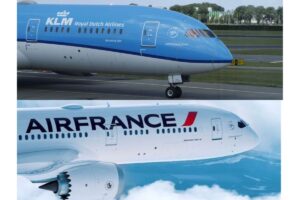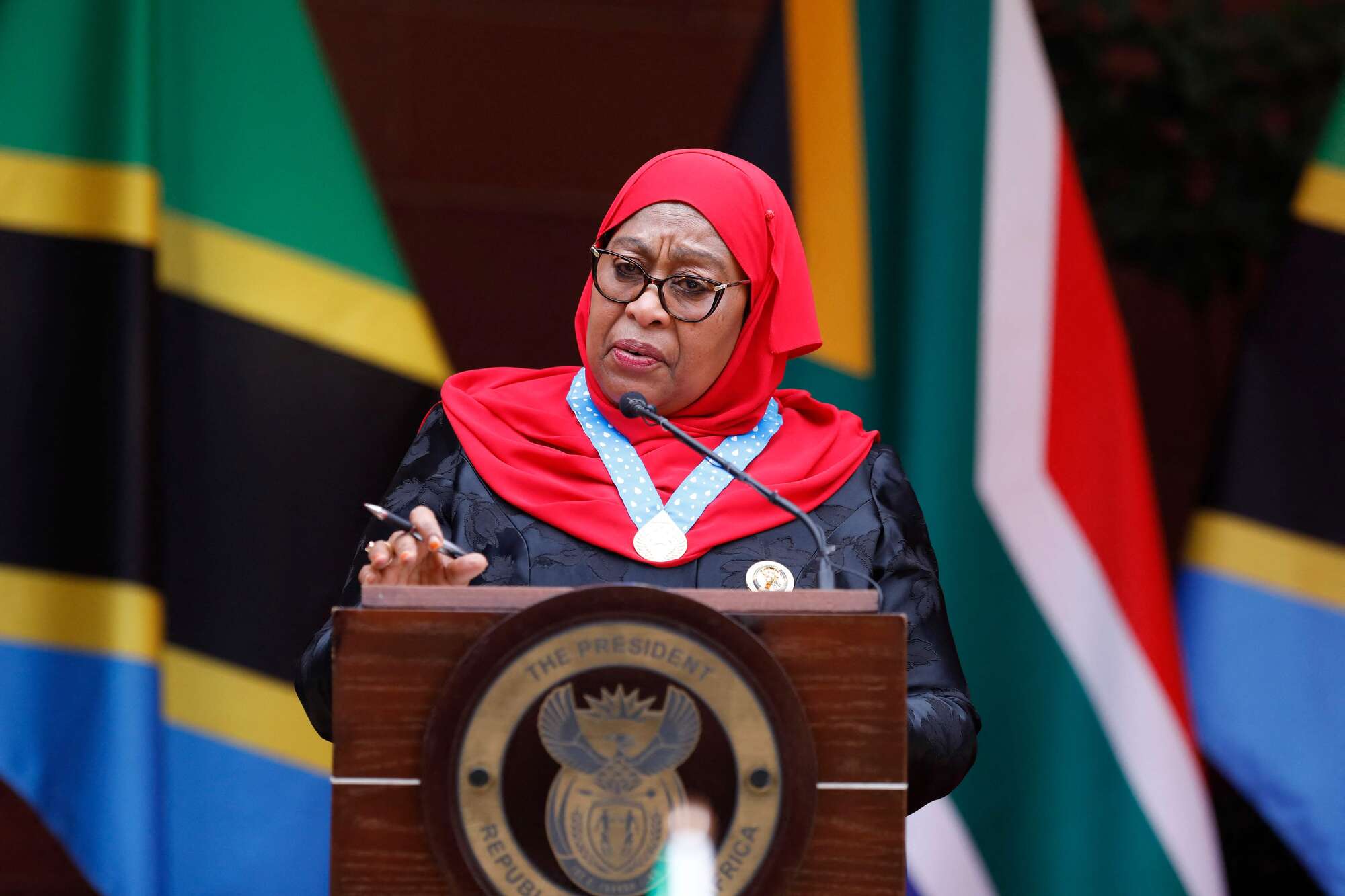TRADE among East African Community member states has continued to grow hitting 10.17 billion US dollars (equivalent to 23.75tri/-) by September last year.
According to the EAC Secretariat imports and exports in the seven partner states grew from 7.1 billion US dollars in 2019 to 9.5 billion US dollars in 2021 and by September 2022, the trade value was recorded at 10.17 billion US dollars, representing a 20 percent share in global trade.
EAC Secretary General, Peter Mathuki, attributed the increase in intra-regional trade to political goodwill among members of the Summit of EAC Heads of State and the relaxation of Covid-19 restrictions in the region, among other factors.
“The high-level discussions among the Heads of State had eliminated many Non-Tariff Barriers (NTBs) hampering intra-regional trade and there is hope that this and other factors will help raise the level of trade to at least 40 percent over the next five years,” he noted.
Since 2007, at least 257 NTBs have been cumulatively resolved and following the high-level summit on the Common Market Protocol held in July 2022, the EAC will review and discuss different issues impeding integration in the next Council of Ministers.
Regional ministers in charge of trade and finance set the 4th Band of the EAC Common External Tariff (CET) as 35 percent.
The CET is one of the key instruments under the Customs Union pillar, which justifies regional integration through uniform treatment of goods imported from third parties.
“From July 2022, imports of locally available goods into the region such as meat, furniture and textiles, have been attracting a tariff of 35 percent. The move aims at promoting local production, value addition and industrialisation,” said Mathuki.
He further disclosed that the bloc’s total trade with the rest of the world stood at $62 billion, adding that there was still room for improvement.
According to Mathuki, the bloc will have a single currency within the next four years.
“The single currency will ease business and movement of persons within the region. It is in line with our goal to make the region borderless so that people can move and trade freely as envisioned in the Common Market Protocol,” he said.
He further indicated that the Council of Ministers is expected to make a decision soon on the location of the East African Monetary Institute, the precursor to the East African Central Bank that will issue the single currency.
Having a single regional currency means that the power of issuing national currency will be taken from governments to a common institution, the East African Monetary Union.
Another important thing highlighted by the Secretariat is the process of sending a verification mission by the end of January to assess the readiness of Somalia after its application to join the regional bloc.
Mathuki described Somalia’s long Indian Ocean Red Sea route that links Africa to the Arabian Peninsula as a vibrant economic zone saying that it will bring immense benefits for the EAC.
“The exploitation of Somalia’s blue economy resources such as fish and the expansive coastline is also set to boost the regional economy,” he said.
Kigali will host the next annual East African Court of Justice sitting as part of the rotational mechanism aimed at implementing the policy of taking the integration to the people at the grassroots, according Justice Nestor Kayobera, the Judge President.
Source: allafrica.com
Share this news
This Year’s Most Read News Stories

Air Tanzania Banned From EU Airspace Due to Safety Concerns
Several airports have since locked Air Tanzania, dealing a severe blow to the Tanzanian national carrier that must now work overtime to regain its certification or go the wet lease way
The European Commission has announced the inclusion of Air Tanzania on the EU Air Safety List, effectively banning the airline from operating in European airspace.
The decision, made public on December 16, 2024, is based on safety concerns identified by the European Union Aviation Safety Agency (EASA), which also led to the denial of Air Tanzania’s application for a Third Country Operator (TCO) authorisation.
The Commission did not go into the specifics of the safety infringement but industry experts suggest it is possible that the airline could have flown its Airbus A220 well past its scheduled major checks, thus violating the airworthiness directives.
“The decision to include Air Tanzania in the EU Air Safety List underscores our unwavering commitment to ensuring the highest safety standards for passengers in Europe and worldwide,” said Apostolos Tzitzikostas, EU Commissioner for Sustainable Transport and Tourism.
“We strongly urge Air Tanzania to take swift and decisive action to address these safety issues. I have offered the Commission’s assistance to the Tanzanian authorities in enhancing Air Tanzania’s safety performance and achieving full compliance with international aviation standards.”
Air Tanzania has a mixed fleet of modern aircraft types including Boeing 787s, 737 Max jets, and Airbus A220s.
It has been flying the B787 Dreamliner to European destinations like Frankfurt in Germany and Athens in Greece and was looking to add London to its growing list with the A220.
But the ban not only scuppers the London dream but also has seen immediate ripple effect, with several airports – including regional like Kigali and continental – locking out Air Tanzania.
Tanzania operates KLM alongside the national carrier.
The European Commission said Air Tanzania may be permitted to exercise traffic rights by using wet-leased aircraft of an air carrier which is not subject to an operating ban, provided that the relevant safety standards are complied with.
A wet lease is where an airline pays to use an aircraft with a crew, fuel, and insurance all provided by the leasing company at a fee.
Two more to the list
The EU Air Safety List, maintained to ensure passenger safety, is updated periodically based on recommendations from the EU Air Safety Committee.
The latest revision, which followed a meeting of aviation safety experts in Brussels from November 19 to 21, 2024, now includes 129 airlines.
Of these, 100 are certified in 15 states where aviation oversight is deemed insufficient, and 29 are individual airlines with significant safety deficiencies.
Alongside Air Tanzania, other banned carriers include Air Zimbabwe (Zimbabwe), Avior Airlines (Venezuela), and Iran Aseman Airlines (Iran).
Commenting on the broader implications of the list, Tzitzikostas stated, “Our priority remains the safety of every traveler who relies on air transport. We urge all affected airlines to take these bans seriously and work collaboratively with international bodies to resolve the identified issues.”
In a positive development, Pakistan International Airlines (PIA) has been cleared to resume operations in the EU following a four-year suspension. The ban, which began in 2020, was lifted after substantial improvements in safety performance and oversight by PIA and the Pakistan Civil Aviation Authority (PCAA).
“Since the TCO Authorisation was suspended, PIA and PCAA have made remarkable progress in enhancing safety standards,” noted Tzitzikostas. “This demonstrates that safety issues can be resolved through determination and cooperation.”
Another Pakistani airline, Airblue Limited, has also received EASA’s TCO authorisation.
Decisions to include or exclude airlines from the EU Air Safety List are based on rigorous evaluations of international safety standards, particularly those established by the International Civil Aviation Organization (ICAO).

Sign up for free AllAfrica Newsletters
Get the latest in African news delivered straight to your inbox
The process involves thorough review and consultation among EU Member State aviation safety experts, with oversight from the European Commission and support from EASA.
“Where an airline currently on the list believes it complies with the required safety standards, it can request a reassessment,” explained Tzitzikostas. “Our goal is not to penalize but to ensure safety compliance globally.”
Airlines listed on the EU Air Safety List face significant challenges to their international operations, as the bans highlight shortcomings in safety oversight by their home regulatory authorities.
For Air Tanzania, this inclusion signals an urgent need for reform within Tanzania’s aviation sector to address these deficiencies and align with global standards.
The path forward will require immediate and sustained efforts to rectify safety concerns and regain access to one of the world’s most critical aviation markets.
Source: allafrica.com

How diplomatic intervention kept Air France, KLM in Zanzibar
It has, however, emerged, that the Netherland and France sought a diplomatic solution to a standoff at the Abeid Aman Karume International Airport, warning that it could disrupt Air France and KLM flights into Zanzibar, and later Dar es Salaam.Continue Reading

President Samia takes on Tanzania’s web of corruption
The President takes on the web of corruption in the Tanzanian government and quasi-government institutions flagged by the newest report by Controller & Auditor-General Charles Kichere. Continue Reading











